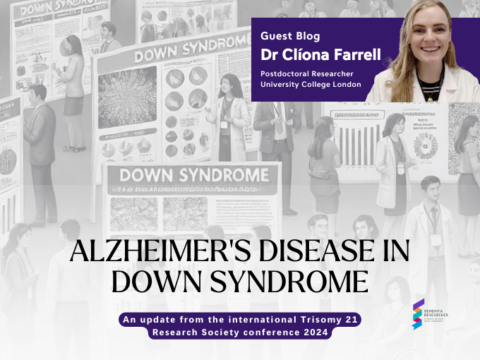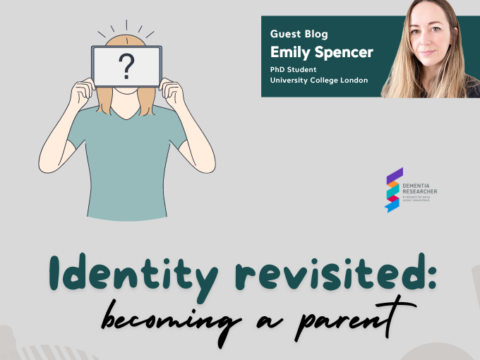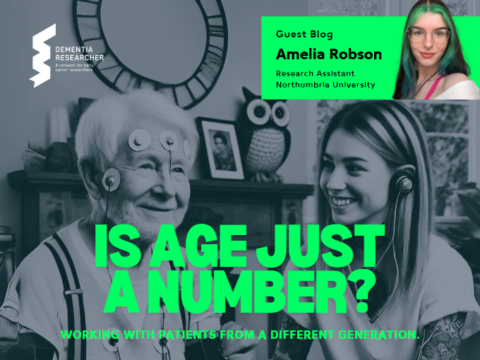As we venture out into 2024 it’s only natural to want to look back at 2023 and consider what went well, what didn’t go so well and areas we can look to improve on in 2024. It’s common do make this kind of reflective summary around our own personal lives at this time of year. That’s the whole rationale behind New Years resolutions. It is an opportunity to change your personal perspective and try and make positive change. But why stop at self-reflection? Why not take the opportunity to look back on 2023 and ask “what else did we learn?”
One thing’s for sure… 2023 felt like a landmark year for dementia research. In October 2022 I wrote a blog where I said I felt like we were about to enter into a really exciting time for the field. I expected to see breakthroughs finally start to happen and was hopeful we would start seeing dementia make the headlines for all the right reasons. Looking back, that certainly seems to have happened!
We got our fair share of the less uplifting headlines too with news outlets reporting predictions of increased rates of dementia in the coming decades, public figures opening up about a diagnosis etc but what felt different was the fact that we saw these stories followed by reports of clinical successes. The general public saw headlines of immune therapy drug Lecanemab gaining FDA approval for use in early Alzheimer’s Disease. We heard figures like a 27% improvement in memory loss and a 56% reduction in loss of quality of life. After decades of attrition with what many perceived to be little progress, this was big, big news… and it got people talking.
I looked through my messages on WhatsApp for last year and could see many instances of dementia making the news and someone asking me about it. Lecanemab was big news but we also saw Ely Lily on the news reporting very positive results with their drug; Donanemab with a further trial on Remternetug concluding early this year. For years dementia has been viewed as a silent evil that ticks away in the elderly unchecked and free to wreak as much havoc as seen fit. It becomes very difficult to retain public interest and understanding about a disease if it feels like nothing can be done about it. Cancer sits well in the public domain not just because of the severity of the disease. We also have treatments and can empower patients with a belief that we can help them. In 2023 it final started to feel like we could be heading towards a reality where we can do the same for dementia research.
It wasn’t just the news coverage as well. That has a knock on effect in all avenues of media. We saw more social media posts, more online articles targeted at dispelling myths, reducing stigma and trying to create a more empathetic understanding of the disease. Alzheimer’s Research UK published their latest report on public attitudes towards dementia. On a first glance it looks similar to the 2021 report with little difference in the proportion of people who are aware dementia is not a normal part of aging. However, the prevalence of good news stories and a media focus on promoting a better understanding of dementia has shifted a critical aspect of public understanding in a positive direction.
The ARUK report showed that more people are aware that you can influence your risk of developing dementia, more people would want to know about their risk, more people would take a test and more people would get involved in medical research around dementia and the public appear to be increasingly aware that current clinical options fall short and we need preventative measures.
That last part is also arguably the most critical. A big difference between dementia and cancer lies in the prognosis at the point of diagnosis. When a cancer is diagnosed, there are often treatment options for the patient. When a patient is diagnosed with dementia, however, the point of effective therapy is often gone (although we are slowly improving this and creating therapies that can help at the point of diagnosis).
This is why it is so promising to see increasing numbers in the general public showing an awareness that preventative strategies are critical. People saying they will take a test shows they know that understanding your own personal risk as early as possible is so important. Pair that with the increased public knowledge about what we can do to try and reduce our risk and we are building a population armed with knowledge of what dementia is, what we can do to help patients, what they can do to help patients and how they can reduce their own risk of developing dementia. Public understanding is critical and it does nothing but benefit our efforts to fight dementia.
I firmly believe that 2023 was a landmark year for dementia research and improvements in public understanding went hand in hand with that. A convergence of breaking new therapies, increased media coverage and heightened public awareness made 2023 a transformative moment in the journey towards more successful and compassionate dementia care. I think that’s something worth raising a glass to in the New Year. Onwards and upwards!

Dr Sam Moxon
Author
Dr Sam Moxon is a Research Fellow at the University of Birmingham. His expertise falls on the interface between biology and engineering. His PhD focussed on regenerative medicine and he now works on trying to develop 3D bioprinting techniques with human stem cells, so that we better understand and treat degenerative diseases. Outside of the lab he hikes through the Lake District and is an expert on all things Disney.

 Print This Post
Print This Post




